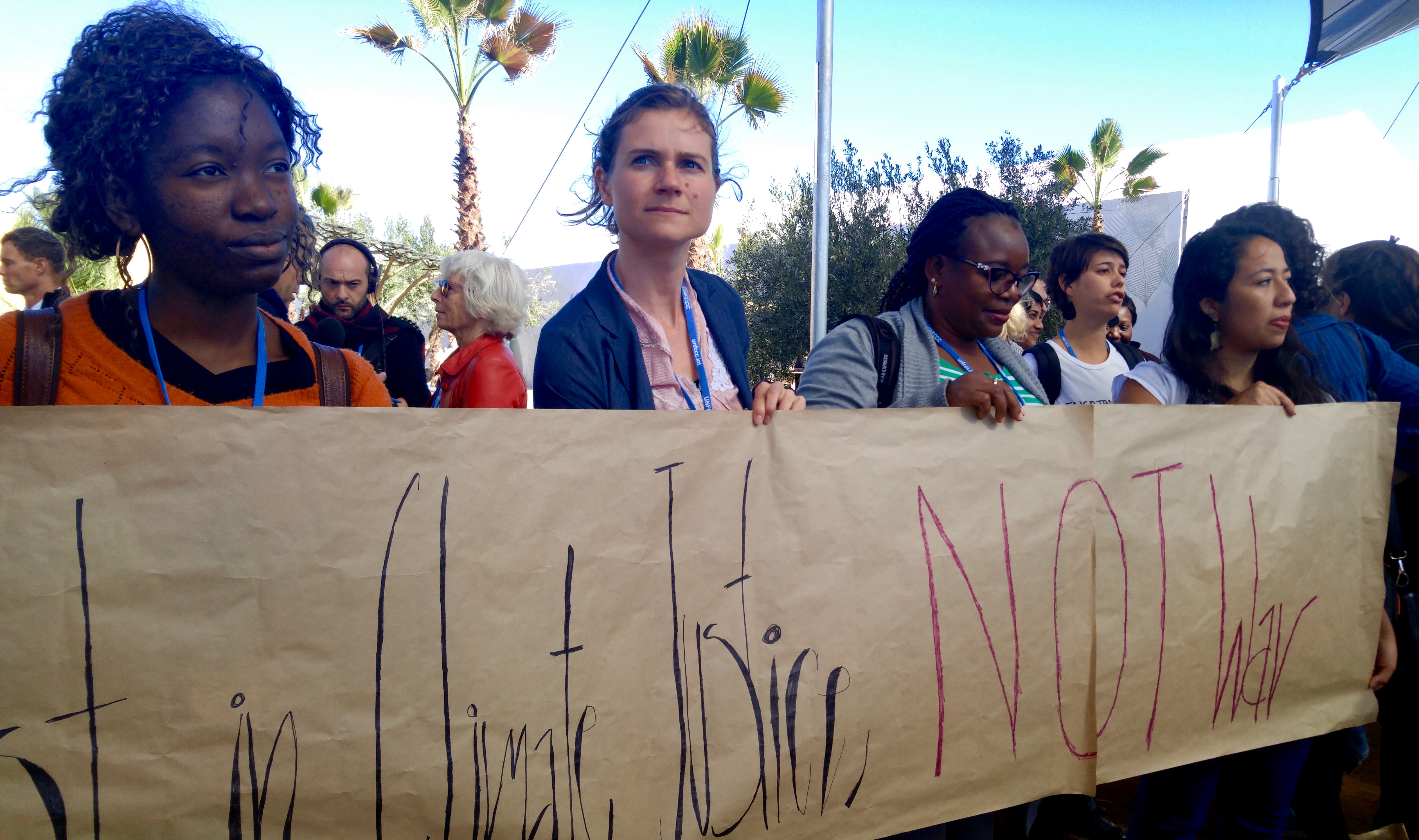Seble Samuel is attending the UN COP 22 climate change negotiations in Marrakech with our friends Climatetracker.org. She will be reporting on the summit on location all week.
The United Nations climate change negotiations have been rolling in Marrakech for one week with the goal of solidifying the Paris Agreement — an international climate accord to limit global warming — and mapping a way forward for low-carbon and climate-resilient development. High-level leaders are now arriving for the second and final week of negotiations.
A major focus of the climate talks is finance, harnessed primarily through the Green Climate Fund (GCF) — the financial mechanism of the United Nations Framework Convention on Climate Change (UNFCCC). The GCF aims to channel financial support to developing countries for both climate adaptation and mitigation projects at different scales.
Last month a road map to reach $100 billion USD per year by 2020 in climate finance was released by developed countries to effectively support developing countries in sustainable and resilient pathways. This commitment, however, has been critiqued by different stakeholders as inadequate to remedy the challenges of emissions reduction, adaptation, and loss and damage — the negative climate impacts that will occur regardless of global climate efforts.
The largest pledge to the GCF has been from the U.S. at $3 billion, $500 million of which have been disbursed. With the upcoming change in government administration, the remaining $2.5 billion is in jeopardy, posing an even greater financing challenge to an already underfunded financial mechanism.
A recent report from the Institute for Policy Studies (IPS), Combat vs. Climate: The Military and Climate Security Budgets Compared, has highlighted that current climate funding pales in comparison to funding for war. Figures from the Stockholm International Peace Research Institute have indicated that global military expenditures top the charts at $1.6 trillion USD, towering over the $10 billion USD that has been disbursed to the GCF to date, or the $100 billion USD goal for 2020. These climate funding allocations account to the equivalent of 6.25 per cent of military spending at best and 0.6 per cent percent at worst.
In addition, an estimated $444 billion USD are provided to the oil, gas, and coal sectors in the form of subsidies from G20 countries every year.
Mobilizations have been taking place at the climate negotiations in Marrakech to demand investment in climate justice, not war. Following the kick-off of the climate talks, the Women and Gender Constituency of the UNFCCC, composed of gender and environmental civil society groups, organized a mobilization to denounce the allocation of military finance over climate finance.
Kate Lappin of the Asia Pacific Forum on Women, Law and Development stressed the importance of the action
“to bring attention to the links between militarism and climate change, both in relation to the way that militarism drives climate change through its emissions and the protection of the fossil fuel industry and the way that military and conflicts are detracting money from the potential to resource the kind of shift [needed] to address climate change.”
According to the IPS report, military expenditure in the U.S. is 28 times higher than climate finance. As an entity, the U.S. military is the largest single consumer of fossil fuel energy in the world. Despite this, military emissions are not accounted for within the Paris Agreement.
The disparity between climate and military finance exposes the fallacies of the discourse surrounding the so-called impossibility of climate finance. If there is abundant money for war, it can most certainly be directly elsewhere.
The mobilizations call for the inclusion of military emissions within national emissions counts and a reduction of military emissions within national climate commitments. Otherwise, limiting warming to 1.5 – 2 C will be impossible.
Like this article? Please chip in to keep stories like these coming.
Photo: ClimateTracker.org



